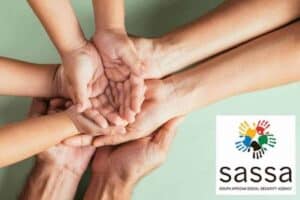'That money is destined for other things and should achieve those end goals in terms of what the government wants to do.'

Many people in South Africa find themselves looking for other means to make extra cash; some might resort to crime, however, others who are law-abiding citizens turn to gambling.
Gambling in the country has increased significantly, but the most worrying thing is the youth has driven this growth. There have been calls to find responsible measures for gamblers in the country.
On Thursday, the Responsible Gambling Summit returned since 2023. The summit hopes to encourage responsible gambling through global trends, international frameworks and best practices.
ALSO READ: TFG says ‘almost entirely extractive’ online gambling is greater threat than Shein
Unemployed youth turn to gambling
South Africa’s economic landscape is gloomy. With even employed people struggling to make ends meet, those who are not employed have to rely on the government’s social grants.
At the summit, Sibongile Simelane-Quntana from the South African Responsible Gambling Foundation (SARGF) told Newzroom Afrika that data shows most gamblers in the country are unemployed youth. “It saddens me that in a country where unemployment is so high, we see that most people affected by gambling are the youth, the youth that is supposed to build the country,” she said.
This is a group of people who are under pressure by social expectations, therefore they turn to gambling with hopes of winning big and finally living the life they dream of and see on social media.
Gambling with SRD grants
Simelane-Quntana added that the most worrying data suggests that a large group of gamblers are social grants recipients, especially the social relief of distress (SRD) recipients.
“The people who are also significantly affected are your social grant recipients, especially those who receive the SRD grants. They are the ones who are actually gambling the most. They take the money that is meant to keep them afloat and gamble it,” she said.
The SRD grant was introduced during the Covid‑19 pandemic to offer temporary financial support to unemployed adults who did not already receive other social grants. It is received by South Africans between the ages of 18 and 59.
Since its introduction in 2020, it has been increased from R350 to R370, and has been extended multiple times, with the latest extension to March 2027.
ALSO READ: R1.5 trillion turnover: Online gambling snares South Africa’s youth
Ban social grants and Nsfas recipients
The Responsible Gambling Summit is being held on Thursday and Friday at Kempton Park, Gauteng.
Sean Coleman, CEO of South African Bookmakers Association, referring to research by Yield Sec, said illegal gambling is a big problem, as it accounts for at least 62% of the total gambling market. There are at least 16 million South Africans thought to be using illegal gaming sites.
Most of the 16 million people are the youth who receive SRD grants and National Student Financial Aid Scheme (Nsfas). Coleman proposed a ban that will see these recipients not being able to use the money to gamble.
How will the ban work?
Coleman said: “Most of our interactions with the SARGF have been on whether the department of social development could interact with the department of trade, industry & competition and provide us with controlled access to the Sassa database and immediately exclude customers who are attempting to sign up.
“The same applies to Nsfas. As an industry, we don’t want to onboard customers who are Sassa grant recipients or Nsfas beneficiaries. That money is destined for other things and should achieve those end goals in terms of what the government wants to do.”
However, he anticipates there might be hurdles, such as the Protection of Personal Information Act (Popia), in accessing this information. However, he said if the country is serious about tackling the gambling challenge, authorisation may need to become a condition.
26 to 35 year olds gamble the most
Business Day reported that asset management firm M&G estimated that most online bettors fall within the 26-35 age bracket, many earning R5 000-R15 000 a month, a demographic with an unemployment rate exceeding 40%.
“At current run rates, we estimate that the money lost by South Africans to online betting platforms will soon be more than R50 billion a year, suggesting that some families are diverting funds away from basic household needs towards high-risk gambling in the hope of quick financial relief,” the firm said.
The National Responsible Gambling Programme (NRGP) has reported a 55% increase in referrals of those seeking voluntary counselling and treatment for problem gambling from 2 662 in 2023/24 to 4 166 in 2024/25.
The National Gambling Board this year presented its socio-economic impact study for 2023/24 to MPs, which showed that there was a 65.7% gambling prevalence and 31% problem gambling prevalence, based on a sample size of 4 000.
NOW READ: Almost half of South Africa’s working women gamble their hard-earned money
Support Local Journalism
Add The Citizen as a Preferred Source on Google and follow us on Google News to see more of our trusted reporting in Google News and Top Stories.








